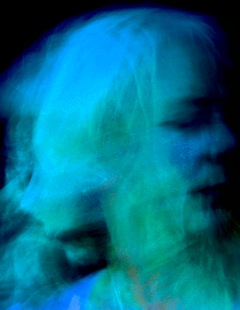You have no items in your cart. Want to get some nice things?
Go shoppingIt’s hard not to  feel sorry for the London theatre scene in August, clamouring for press coverage as the creative centre of gravity moves north of the border. One wouldn’t begrudge Edinburgh this attention: in no other arts festival in the world is a city so effectively commandeered to the service of culture. However, for those who are London-bound – or bound to London – there is a smaller-scale alternative in the form of the Camden Fringe, which comes to a close on August 25th after a tight programme of events throughout the month. The programme, which is in its eighth year, takes place across sixteen venues around Camden and Covent Garden. With a similar ethos to the early Edinburgh Fringe, the shows are nearly all performed by unknown actors tackling untried material. This gives plenty of room to explore ideas and concepts in new ways but – as with any fringe festival – the results are uneven in places.
feel sorry for the London theatre scene in August, clamouring for press coverage as the creative centre of gravity moves north of the border. One wouldn’t begrudge Edinburgh this attention: in no other arts festival in the world is a city so effectively commandeered to the service of culture. However, for those who are London-bound – or bound to London – there is a smaller-scale alternative in the form of the Camden Fringe, which comes to a close on August 25th after a tight programme of events throughout the month. The programme, which is in its eighth year, takes place across sixteen venues around Camden and Covent Garden. With a similar ethos to the early Edinburgh Fringe, the shows are nearly all performed by unknown actors tackling untried material. This gives plenty of room to explore ideas and concepts in new ways but – as with any fringe festival – the results are uneven in places.
One such example is the Brighton-based group, Witness Theatre, who offer an intriguing premise in their short production, Window, staged last week at Covent Garden’s Tristan Bates Theatre. Developed from an award-winning short screenplay of the same name, the show is billed as a “multimedia theatrical thriller” dissecting our relationship with the internet. The show was funded partly through crowd-funding, a modern exemplar of the internet as an instrument for artistic solidarity – but, ironically, the show itself does little to suggest that technology will bring us closer together.
A one-woman performance, the show is focused on Alice and her growing obsession with the internet and her online life. Ostensibly a look at what technology and social media is doing to our relationships, the show has a dystopian feel as loops of video and sound haunt Alice. However, while the questions it raises are interesting, it often fails to dig much deeper than the surface. The multimedia dimension is a mixed bag, with elements of dance, monologue, poetry, video projection and audio playback thrown together without any clear sense or reason.
The strongest parts by far are the semi-confessional monologues delivered by the performer, Witness Theatre producer Hannah Jarman. In these sections she chronicles the day she lost her imaginary friend, her later discovery of the internet when she was eleven years old and, finally, her withdrawal from the world as she becomes obsessed with her online personae. The prevailing themes – isolation, imaginary friendships, fake relationships, the disappearance of those we love – are all strong and are all touched on at one point or another in the short performance; however, none of them are given sufficient space to grab the audience’s attention.
The parallel between a child’s imaginary friend and our own imaginary online personae is a case in point: it is an intriguing connection, and raises questions about how far this advanced technology serves only to infantilise us. However, as with other themes encountered, it is simply not explored in sufficient depth. Instead, the production switches backwards and forwards between pre-recorded projections, pseudo-dance pieces and live delivery, creating a confusing amalgam.
This mixed format may be an attempt to mirror the limited attention spans of the modern audience, but without the interactivity of the internet there is not the same response. While your average internet user may flick between web pages, music and YouTube clips at whim, it is a fundamentally different experience to watching a scripted performance where there remains a challenge in creating a coherent narrative.
While in some shows the ability to spark a thousand unanswered questions can make the piece resonate more strongly, the lack of coherence in this case creates something of a barrier to enjoyment. As a solo piece, there is not the scope to create the broad spectacle which might otherwise have carried some of the non-spoken segments.
Nonetheless, this remains an intriguing performance, not least because it tackles material that is normally the preserve of newspaper opinion columns and turns it into a living, breathing piece of theatre. While this production may not challenge the established theatres down the road in Covent Garden, it points a light on the issues that might one day unseat them, as the technology to which we devote ourselves drives us to retreat further and further into our online shells.

About Lochlan Bloom
Lochlan Bloom is a British novelist, screenwriter and short story writer. The BBC Writersroom describes his writing as ‘unsettling and compelling… vivid, taut and grimly effective work’. He is the author of the novel The Wave as well as the short fiction pieces – Trade and The Open Cage. He has written for IronBox Films, BBC Radio, Slant Magazine, Litro Magazine, Porcelain Film, EIU, H+ Magazine and Calliope, the official publication of the Writers’ Special Interest Group (SIG) of American Mensa, amongst others




